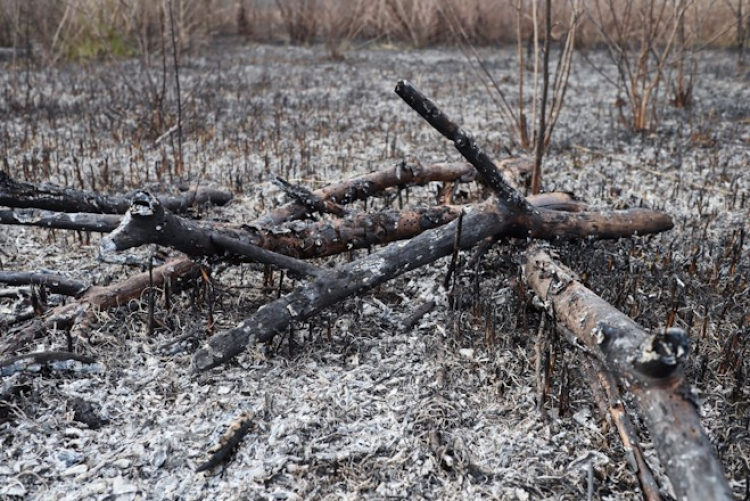Russia’s war in Ukraine turns two: insuring risk now, not afterwards

As Russia’s war in Ukraine enters its third year, how is the insurance market working to sustain Ukraine’s economy and underwrite economic recovery?
Risk perceptions can be markedly different to real-life situations. War risk reinsurance exclusions, for example, have been applied across Ukraine, but insurance brokers’ efforts to build data and improve understanding are bridging gaps between risk and reality.
For instance, the chance of a commercial property being hit by Russian bombs is dramatically different within a city such as Lviv in Ukraine’s far west, or in Kyiv, which is targeted but also well-defended, or in cities like Kherson or Kharkiv, much closer to the frontline or border.
This variation is a starting point for managing and insuring risks in Ukraine, and for the insurance industry to begin to build workable solutions, Jake Hernandez, CEO of AnotherDay, a crisis management consultancy owned by insurance broker Gallagher, told Airmic News.
“The Russian air war has been increasing and decreasing in intensity in various places as the war has progressed. Kharkiv is a particular example of that, as the city keeps taking nasty hits in recent months,” said Hernandez.
“Broadly speaking, the west of the country is much safer than the east, and once you get within 50-60km of the line of contact, this is where the risk changes drastically. There are exceptions to the rule, such as Odessa and the Danube ports, where the Russian air war is having an effect through the winter,” Hernandez added.
Data-driven progress
2024’s Ukraine Recovery Conference (URC) will be hosted by the German government in Berlin in June, with governments and industry collaborating through public private partnerships (PPPs), seen as the key to underwriting Ukrainian economic activity.
The first URC took place in the UK last year and saw a plethora of commitments. Among these was a war risk pool proposed by Marsh McLennan to insure international reconstruction plans for the country.
Through PPPs, insurance brokers are turning to data to build confidence for risk transfer of property and construction business needed to sustain and rebuild Ukraine’s economy.
Marsh McLennan committed its services pro-bono to design and deliver a risk data platform to allow insurers to assess Ukrainian risks with greater confidence. The platform was built and began testing in September 2023 for use in 2024, according to Julian Enoizi, European CEO of Guy Carpenter, the company’s reinsurance broking arm.
“We have built a platform for underwriters to use. The data set comes from the only place it could come from, the Ukrainian government. They input where an event occurs, how much damage was done, what type of weapon caused it, etc,” Enoizi said, speaking with Global Reinsurance.
“You’ve got property and construction insurance, which is applicable to the rebuilding, but also marine cargo insurance to transport the construction materials in the first place. Then you’ve got other political risk type covers, to protect investors that would be coming in,” Enoizi added.
Aon, Lloyd’s and Vienna Insurance Group (VIG), announced the UK-Ukraine Private Finance Partnership, also at least year’s URC. This was a commitment to fast-track access to re/insurance capacity to support companies operating in Ukraine with manufacturing and construction risk exposure, excluding war cover.
Ukraine’s government has been central to these PPPs, not just providing data, but also amending legislation or clarify its regulatory approach, such as for admitted and non-admitted re/insurance risks.
At the latter scheme’s launch, John Neal, CEO, Lloyd’s, said: “By ensuring the country’s insurance market has the necessary capital to lead on insurance solutions for its customers, backed by the financial might of the international (re)insurance industry, we can help strengthen Ukraine’s economic resilience as it recovers and rebuilds.”
Dominic Christian, Aon’s global chairman of reinsurance solutions, added: “This unique commitment from Lloyd’s, VIG and Aon brings together the insurance industry’s proven expertise in innovative risk management and capital solutions, and so with urgency and energy we will help to restore social well-being to citizens, communities and corporations in Ukraine.”
Marine market confidence
In November, Marsh McLennan announced another PPP called Unity for Ukrainian grain exports. Underwritten by Lloyd’s insurers, it provides ships with up to $50m in hull and separate protection and indemnity war risk insurance, with a panel of bankers and Ukraine’s government providing underlying letters of credit.
Ukraine’s Black Sea exports have risen in recent months, with grain ships using a Ukrainian-administered corridor to and from Odessa.
Hernandez said: “Ukrainian security forces are closely involved, such as for mine clearance and ensuring vessels steer as close as possible to NATO territorial waters of Bulgaria and Romania. That kind of risk management close coordination has been critical.”
The maritime industry and insurers have embraced the new situation, with war risk pricing already dropping to more affordable levels, according to February’s meeting of the International Union of Marine Insurance (IUMI).
“The shipping community has gotten more confident,” said Frédéric Denèfle, IUMI’s president. “We heard recently that Ukraine was able to export more than 10 million metric tons of [agricultural] cargoes.”
Rather than hitting ships at sea, recent attacks have struck port infrastructure. However, the Ukrainians have worked hard to repair this damage, Denèfle emphasised, and Russia’s navy has suffered several high profile warship losses, causing it to retreat from the western Black Sea.
Insurers, for their part, are “ready to insure” vessels, cargo, and war risks, Denèfle added.
